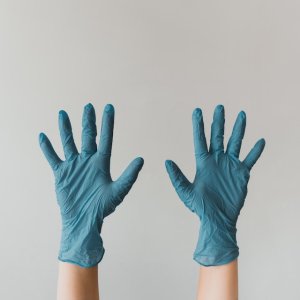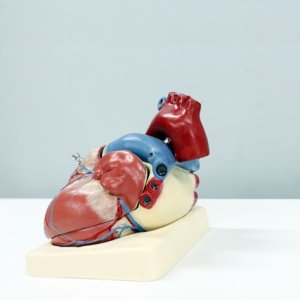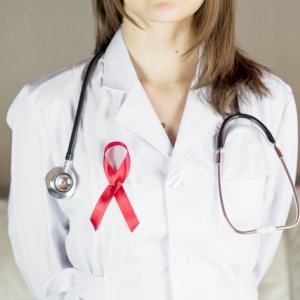
Global Fight Against HIV
 By Miriam Bello | Senior Journalist and Industry Analyst -
Tue, 12/01/2020 - 19:57
By Miriam Bello | Senior Journalist and Industry Analyst -
Tue, 12/01/2020 - 19:57
December 1st is World AIDS Day, a movement that seeks to unite people around the globe to support the fight of people living with HIV and to remember those who have died from the illness. Each year, World AIDS Day has a different theme and in 2020, the theme is Global Solidarity, Shared Responsibility. Following COVID-19, the event seeks to bring further attention to the role inequality plays in public and individual health. According to the UN website, eliminating stigma and discrimination, putting people at the center and grounding our responses in human rights and gender-responsive approaches are key to ending the colliding pandemics of HIV and COVID-19.
Human immunodeficiency viruses (HIV) cause acquired immunodeficiency syndrome (AIDS). As described by HIV.gov, HIV is a virus that attacks the immune system, the cells that help the body fight infection, making a person more vulnerable to other infections and diseases. AIDS is the condition developed at a late stage of HIV infection, which occurs when the body’s immune system is badly damaged because of the virus. This is a sexually transmitted infection but contagion can also occur through bodily fluids, meaning that non-sexual transmission can be possible at birth, from an infected mother to her infant during pregnancy, through exposure to her blood or vaginal fluid and through breast milk.
Globally, AIDS/HIV has taken the lives of 32 million people since the beginning of the outbreak in 1981. After almost four decades of its discovery, the disease can be prevented, controlled and treated through drugs. As a result, people can live a long and healthy life while having the illness.
Mexico had its first HIV case in 1983 and from that day onwards (until Nov. 26, 2020), the country has had 313,969 HIV cases, according to CENSIDA. From that number, 59 percent were alive active cases, 36 percent had passed away and 5 percent of them have an unknown status. Approximately 81.2 percent of the patients are men and 18.8 percent are women. In 2019, the country registered around 17,172 new HIV cases, the majority of them between the ages of 25 and 44 years of age. In Mexico, HIV is a concentrated epidemic, according to the data and terminology of the INSP. It mainly affects men who have sex with other men, male and female sex workers, transgender people, transsexuals and transvestites, people who inject drugs and inmates.
According to the Ministry of Health, it was estimated that Mexico registers two new HIV cases every hour. Despite its importance, the current government seems to not have it as a priority in the agenda. A The Lancet article from 2019 exposed a government fund cut for several initiatives that supported the fight against HIV/AIDS in Mexico. The article explains how this led to a shortage in antiretroviral drugs, which was blamed on issues related to the changes to the centralized purchasing scheme for medicines that the government was implementing. At the time, the government had recently introduced INSABI, the institute that replaced Seguro Popular, which was in charge of supplying antiretrovirals to patients. This issue in Mexico City led to protests from patients and it encouraged an internal initiative from doctors and researchers from national institutes and from Clínica Condesa, the specialized clinic to treat HIV/AIDS, to find replacement treatments for patients.
This is not the first struggle HIV/AIDS patients suffer. Historically, these patients have been victims of stigma, which has led to discrimination and exclusion from society. A survey carried out by INEGI shows four of every 10 men assure that being close to a person infected with HIV is a danger. This stigma can negatively affect the health and well-being of people living with this disease by discouraging some individuals from learning their HIV status, accessing or following up with their treatment. It can also affect those at risk of HIV by discouraging them from seeking HIV prevention tools and testing, and from talking openly with their sex partners about safer sex options. According to an article from CNDH, in Mexico, these forms of discrimination are added to other abuses, including refusals to provide health services or to access the necessary medications for treatment.
COVID-19 brought a new element to the fight against HIV/AIDS, highlighting the importance of solidarity and resilience. According to UNAIDS, leadership and engagement of communities, instrumental in the success of AIDS response strategies, has been key in responding to COVID-19. However, further support is needed. WHO states that COVID-19 makes it difficult and dangerous for frontline health workers to deliver continuous, high quality HIV services to everyone who needs them. Sickness and restricted movement make it difficult for people living with HIV to access services. Economic disruption caused by COVID-19 can make HIV services unaffordable or unobtainable. Furthermore, the pandemic may interfere with supply chains and service delivery. Supply disruptions such as these are devastating: a WHO and UNAIDS modeling study showed that a six-month disruption in access to HIV medicines could lead to a doubling in AIDS-related deaths in sub-Saharan Africa in 2020 alone.
To change the current challenging scenario of COVID-19 versus HIV, WHO proposes the following:
- To renew our fight to end HIV by investing in innovate HIV services with broader healthcare to get back on track to end HIV by 2030,
- To use innovative HIV services to ensure continued HIV care. WHO has recommended multi-month prescriptions of HIV medicines to protect the health of people on HIV treatment and to reduce the burden on health services
- To engage and protect our nurses, midwives and community health workers
- And to prioritize the vulnerable, youth and key populations.
















